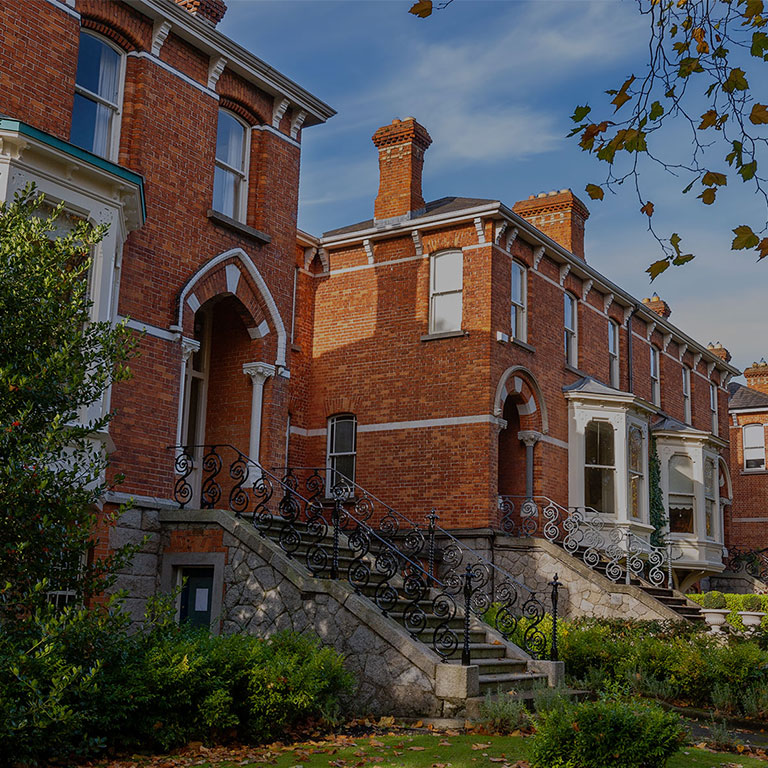1What kind of property should I buy for rental?
This will all depend on the market and your investment goals. Generally, one or two-bedroom apartments rent well, can produce solid yields and can have lower maintenance costs. On the other hand, larger houses or multi-lets can produce higher yields but may come with more risk such as higher maintenance costs. It will all depend on your appetite for risk. Feel free to try our investment yield calculator or speak to one of our staff discuss your goals.
2What is the market rent for my property?
The market rent for your property will be subject to several variables including the market rents, the condition and contents of the property. To get an accurate valuation and/or some advice on how to improve to this feel free to register for a free valuation today.
3How will my rental income be taxed?
This will depend on several variables including the ownership structure and your own income level. There are various ways to reduce your income tax bill for example maintenance costs and management fees are all tax deductible. For more information we recommend speaking with a tax advisor or visiting www.revenue.ie
4Should I expect much maintenance costs?
This will depend on many variables such as the age and the type of property, age of appliances, the number of tenants and whether it was furnished or unfurnished. The industry rule of thumb is 10% of rental income, however, with good tenants and a good agent this can be much lower.
5How should I furnish my property?
When it comes to letting your property first impressions are everything. Well-furnished properties generally attract the best tenants. However, with that being said, you can furnish a property however you like. As your agent, we would advise you on this based on your goals and the state of the market. However, please note that there are also some Minimum Standards that must be met, link provided.
6Are there any further requirements my property should meet before renting?
Before being a placed on the market all properties must have a Building Energy Assessment Rating (BER). You will also require 10-year smoke & carbon monoxide alarms, a fire blanket and window restrictors for all windows above 1400mm. As your agent, we can arrange all of this for you as part of our letting service.
7What type of tenants should I be looking for?
This will all depend on what your goals are. If you are looking for a high paying corporate tenant, then your property must be furnished to a corporate standard. If you are looking for a secure long-term tenancy, then your property must be priced to attract this. To summarise, it is not as simple as selecting the first applicant with a solid income. We believe in matching the tenant to the property and vice versa.
8What type of Tenancy Agreement do I need?
The two most common form of leases in Ireland are a 12-month Fixed Term Lease or a Part Four Lease. The lease you choose should fit in with your plans for the property. Regardless of the lease, we would always recommend beefing it up with additional special conditions to further safeguard your interests. A good agent should have a robust tenancy agreement and will advise you on the best route to take. For more information on Landlord and Tenant Obligations click here
9What happens if the tenants breach the obligations of the lease?
Your response should be proportionate to the action. In other words, it will depend on the severity of the breach. In severe cases, you could issue 24 hours’ notice to vacate. However, these are quite rare, most breaches are related to rent arrears, subletting or inspection failures. In these instances, there is a prescribed process you should follow. You can find more information on RTB Onestop Shop.
The law is rather complicated in this regard in Ireland. If the right tenants are selected and the tenancy is managed correctly you should not find yourself in this scenario.
10What kind of notice should I give if I need my property back?
Unless in the case of a breach of obligations the notice periods are as follows:
Notice Duration of Tenancy
28 days Less than 6 months
90 days Not less than 6 months, but less than one year:
120 days Not less than one year, but less than three years
180 days Not less than three years, but less than seven years
196 days Not less than seven years, but less than eight years
224 days Not less than eight years
11What is a Rent Pressure Zone (RPZ)?
Rent Pressure Zones are designated Local Electoral Areas where rents can only rise by up to 4% per annum, and the rent can be no more than market rent. The 4% maximum applies to new and existing tenancies. There is a prescribed formula to calculate your rent so we would recommend discussing this with your agent prior to setting your rent.
12What is HAP?
The Housing Assistance Payment (HAP) is a form of social housing support provided by local authorities. Under HAP, local authorities will make a monthly payment to a landlord, subject to terms and conditions including rent limits, on a HAP tenant’s behalf.
In return, the HAP tenant pays a weekly contribution towards the rent to the local authority. This ‘rent contribution’ is based on the household income. It is calculated in the same way as the rent paid by a tenant of a local authority owned property.
For more information please see the Government’s Landlord Booklet.


